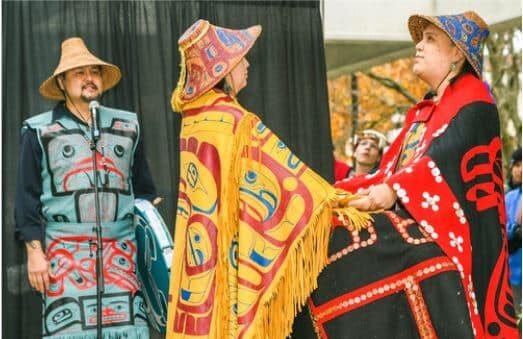Mosaic Forest Management, a logging company, agreed with the Indigenous Peoples (IPs) to preserve forests on two Canadian islands home to 700-year old trees.
Mosaic is one of British Columbia’s largest logging companies. The firm decided to make truce with the indigenous communities in preserving forests in Vancouver Island and Haida Gwaii.
The company promised to defer logging for at least 25 years on 100,000 acres of forest lands.
Doing so will not only make them be at peace with the IPs living in the forests. They can also earn as much as $230 million (CA$300 million) over the life of the project by selling carbon credits.
Indigenous Peoples and Carbon Markets
The emergence of carbon markets created a unique opportunity for indigenous communities to develop an economic sector that can align with their lifestyles and sustainable forest management.
It also opens doors for forming partnerships and developing climate policies with the IPs.
Indigenous peoples are benefiting from two major shifts in the carbon market:
- There’s a growing recognition of the rights of IPs in protecting forests
- Prices for carbon credits make preservation of forests as profitable as logging
IPs around the world have been fighting to stop logging in the forests they’re preserving. They occupy about ⅓ of the world’s undeveloped forest lands.
In Canada, the IPs have been doing it for about 40 years now and gained double victory.
- Logging ended on the protected forests in Vancouver Island and Haida Gwaii.
- At the same time, Mosaic agreed to pay the IPs millions of dollars to protect the centuries old trees.
The agreement sets aside 100,000 acres of old growth trees on the said Canadian islands for over 25 years.
Many project managers believe that IPs play a critical role in fighting climate change. As per Mike Korchinsky from Wildlife Works, he said that:
“I don’t believe there is any way we can achieve our climate goals globally without ensuring the support of indigenous communities to conserve our forests…”
Wildlife Works is a U.S. conservation firm managing forest-based carbon projects in Africa, Asia and Central and South America.
The Canadian IPs
First Nation is one of the Canadian IP groups that were not in unity when Mosaic invited over 2 dozen communities to help design and manage forest conservation plans.
The protected forests are on land controlled by Mosaic under a land grant. But those forests have been home to IPs who now have more say over how to manage the land.
Mosaic’s offer includes an unrevealed share of carbon credits sales for the IPs to protect the forests. The proceeds will pay for the research, forest management training, and other conservation services.
Some members of the indigenous communities initially rejected the offer for various reasons. According to Eli Enns, a First Nation member, many were distrustful due to limited land rights, abuses, and forced assimilation.
He also said that some IP members preferred to earn income from their logging jobs. But now most of the IPs understand the potential for carbon credits to achieve what decades of protests failed to deliver.
Enns stated that:
“Mosaic was not required to include us in the project… Yet they found a way to make meaningful progress to reconcile the First Nation’s management of their forest lands.”
The timber firm stands to earn as much from selling carbon credits as it would selling logs from the protected forests. The overseer of the carbon credit project noted that it was the right time to strike the deal.
The cash from the carbon credits will be shared among the local members of the First Nation. Same with other Canadian IPs, they’re given more rights over these projects by the new federal laws.
Carbon credits from protecting forests
Carbon credits produced by projects involving forests are among the most sought after and pricey. That’s because they protect trees that store large amounts of carbon.
Rainforest protection projects are often found in countries with robust legal safeguards. Popular examples are the cases of Indonesia and Papua New Guinea. Restrictions on forest carbon credits generation were set in both forestry dense countries.
Meanwhile, forest projects in the U.S. were deemed to generate dubious carbon credits. This is quite identical in the case involving the Surui people living in the Amazon.
The Amazon project was banned in 2018 after rogue miners and loggers cleared a large number of trees. This led to warning that carbon credits may erode indigenous peoples rights.
These issues discouraged carbon credit buyers from supporting projects where IPs rights are unclear.
- But the recent boom in the carbon credit market and improvements in IPs forest rights are drawing more attention.
Logging firms, tribal groups, and governments are now taking advantage of the developments in carbon markets.
Companies buy carbon credits to offset their emissions and achieve their climate goals. The market hit $1 billion in 2021 and will grow more to the tens of billions over the decade.
In 2021, Verra tracked the issuance of ~130 million sales of carbon credits from forest projects. That’s about a 3x increase from 2020 forest carbon credits sale.

